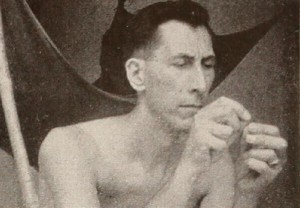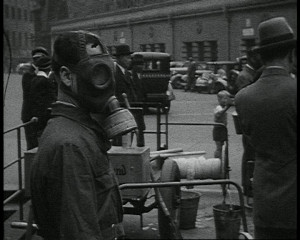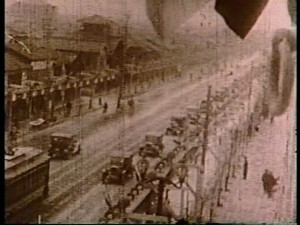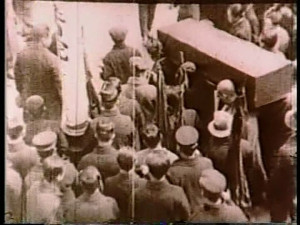"Stereotype leans towards the experimental style to give us an insight on the plight of the Negro in the modern world" PSA Journal, Aug. 1967, 37.

"It is generally accepted by the less moronic elements that Hollywood's version of life in the army not only missed the point but overlooked it completely. Reginald McMahon, a hardy private first class during the war, has compensated greatly for Hollywood's sins in his Sweating It Out, a clever film recording the period between V-J day and his return from overseas. Mr. McMahon was with the 24th Combat Mapping Squadron, stationed at Gushkara, India. He was in a position to show what a hot, boring climate does to military stiffness and the blithe American temperament; and he has done so. Barracks life becomes very real in his hands, with its essential lack of glamour, its endless small detail and its everlasting poker games. The negative aspects of army life at an outpost — K.P. and guard duty — come in for their proper share of bitter comment. Mr. McMahon is to be thanked for recording the trivia that make up army life in a way that makes one almost nostalgic for them." Movie Makers, Dec. 1946, 488-489.

"A short film recording details of a fire-fighting demonstration by the Reichsluftschutzbund." (EAFA Database)
"A documentary made in association with the Bournemouth, Poole and Christchurch Wing of the Air Training Corps (ATC) produced under the auspices of the Air Ministry. A young man works in a grocer's shop and wraps up slices of bacon in a newspaper telling of Hitler' s victories. He cuts out a piece about the ATC. With friends he goes to the cinema (the Moderne) to see 'Week-End in Havana' (1941) and in the foyer signs up for the ATC as a flight mechanic. (EAFA Database)

"After his Tokyo farewell ceremony, Yamamoto's ashes were sent to Kyoto on March 9. Many friends and citizens gathered at his home in Uji. On the 15th a worker-farmer funeral was held at the Sanjo YMCA. Prokino's Kyoto Branch shot these five days of activities. The long line of cars is filled with taxis whose drivers deeply admired Yamamoto. The Watanabe in the title refers to the head of the Communist Part of Japan. Watanabe was returning to Japan from Taiwan when he was stopped by authorities. He committed suicide in their custody. Yamamoto and Watanabe were mourned together."

"Yamamoto Senji fought against the Peace Preservation Law in the Diet. On March 5, 1929 he was assassinated by the right wing. A farewell ceremony was held near the University of Tokyo. Prokino's Tokyo Branch shot the procession." Film shows the crowd marching through the streets of Tokyo.
"A lesson on FDR's Four Freedoms." ("More about an Amateur Cinema League of Nations.")
Total Pages: 9